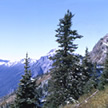| Report Documents
|
|
|
| |
| Map Plotfiles
|
-
No files of this type available
|
| |
| Data Files
|
-
No files of this type available
|
| |
| Digital Map Files
|
-
No files of this type available
|
| |
| Image Document
|
-
No files of this type available
|
| |
| Video Files
|
-
No files of this type available
|
| |
|
All Documents
|
|
|
| Contact
|
|
-
If you have any questions on the information presented, or require additional report data or attachments, please contact the
Ministry.
|
|
|
The goal of this project is to better understand terrestrial caribou forage lichen dynamics following habitat alteration in order to develop conservation practices for the sustainable supply of forage for caribou.
|
Author: Cichowski, D.; Sutherland, G.; McNay, S.
|
Old Reference Number: PEA-F-17-W-1315
|
Old Reference System: FWCP Fish Wildlife Compensation Program - Peace
|
Date Published: Aug 2017
|
Report ID: 52759
|
Audience: Government and Public
|
In north-central British Columbia (BC), caribou (Rangifer tarandus) in the Chase, Wolverine, and Scott ranges (Omineca caribou) are part of the Southern Mountain Caribou (SMC) population, which is listed as Threatened under the federal Species at Risk Act (Environment Canada 2014). During winter, Omineca caribou use low elevation lodgepole pine (Pinus contorta) forests where they forage for terrestrial lichens. The recent mountain pine beetle (Dendroctonus ponderosae; MPB) epidemic and
increased forest harvesting pressures on Omineca caribou winter ranges have led to concerns about habitat supply and caribou population dynamics. This project assesses
response of caribou terrestrial lichens in the Omineca area to six forest harvesting treatments 12-14 years following treatment, and to MPB attack, using previously
established permanently marked plots. Information from this project will assist in assessing the effects of habitat alteration due to MPB and forest harvesting on habitat
supply and population dynamics for the Wolverine, Scott and Chase caribou populations.
The goal of this project is to better understand terrestrial caribou forage lichen dynamics following habitat alteration in order to develop conservation practices for the sustainable supply of forage for caribou. Specific objectives for 2016-17 include: 1) re-measuring terrestrial lichen abundance, competing vegetation abundance, stand structure, regeneration and coarse woody debris at five sites in MPB-killed stands and post-forest harvest sites in the Omineca area, and 2) assessing changes in forest floor vegetation dynamics, stand structure, and coarse woody debris accumulation since pre-MPB measurements at control plots, and since post-harvesting measurements at harvested lots.
This project aligns with the Fish and Wildlife Compensation Program's Species of interest Action Plan in that it addresses Action 1b-2 'Implement projects identified
through approved recovery strategies, action plans, and management plans' by addressing three recovery approaches in "The Recovery Strategy for the Woodland
Caribou, Southern Mountain population (Rangifer tarandus caribou) in Canada" (Environment Canada 2014): 1) measure and monitor habitat alteration to southern mountain caribou habitat; 2) assess the impact of natural disturbance (e.g. forest fire, mountain pine beetle, pine rusts) on the long-term habitat management of southern
mountain caribou ranges; and, 3) monitor habitat and use adaptive management to assess progress and adjust management activities as appropriate. This project
evaluates the impact of MPB and six different forest harvesting regimes on caribou terrestrial forage lichens using previously established permanent plots.
|
Report Type
Subject
| |
Biogeoclimatic Zone - BWBS Boreal White and Black Spruce Zone |
| |
Biogeoclimatic Zone - SBS Sub-Boreal Spruce Zone |
| |
Mammals - Caribou: Rangifer tarandus |
| |
Vegetation - Plant Ecology |
| |
|
|
